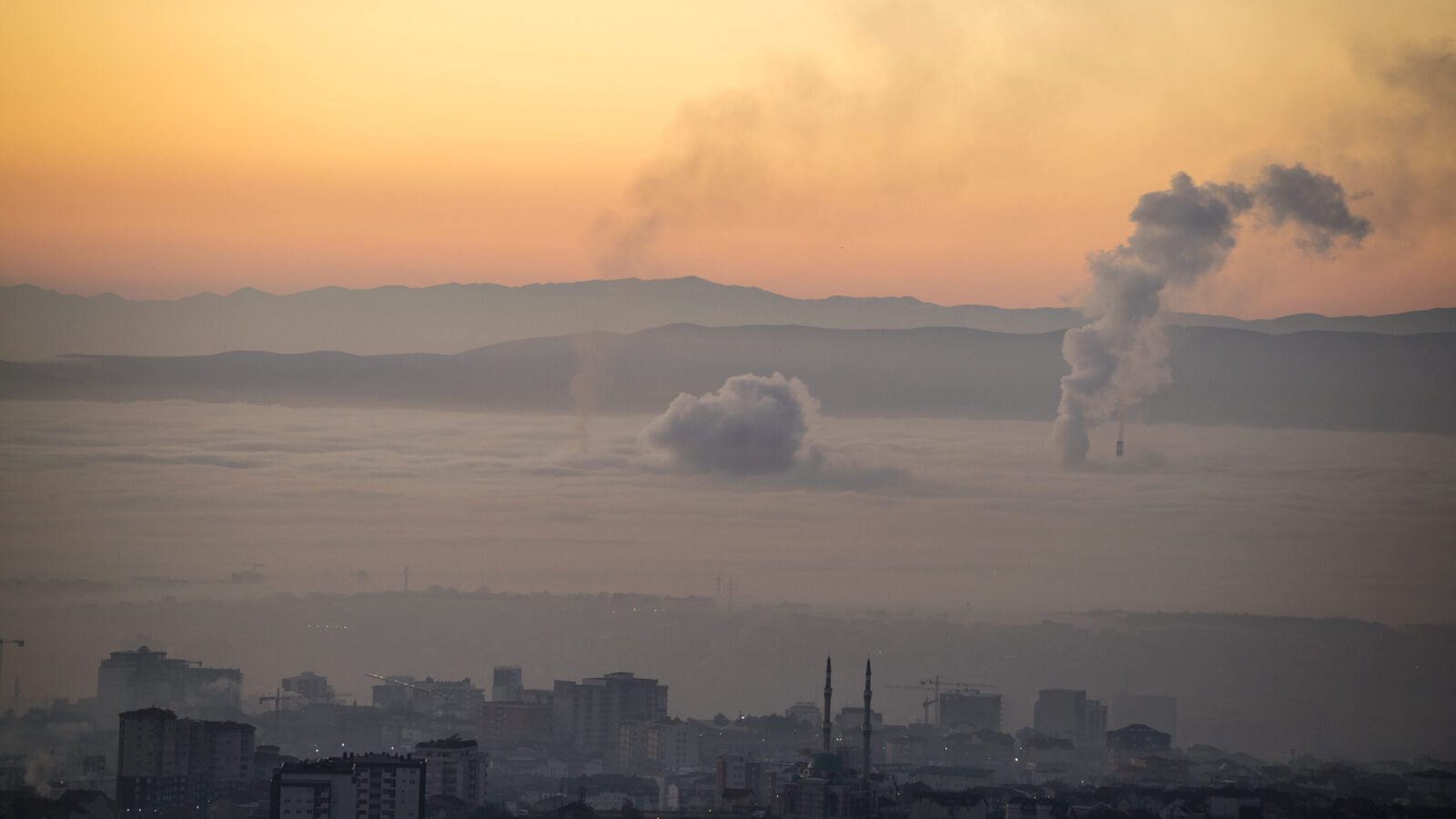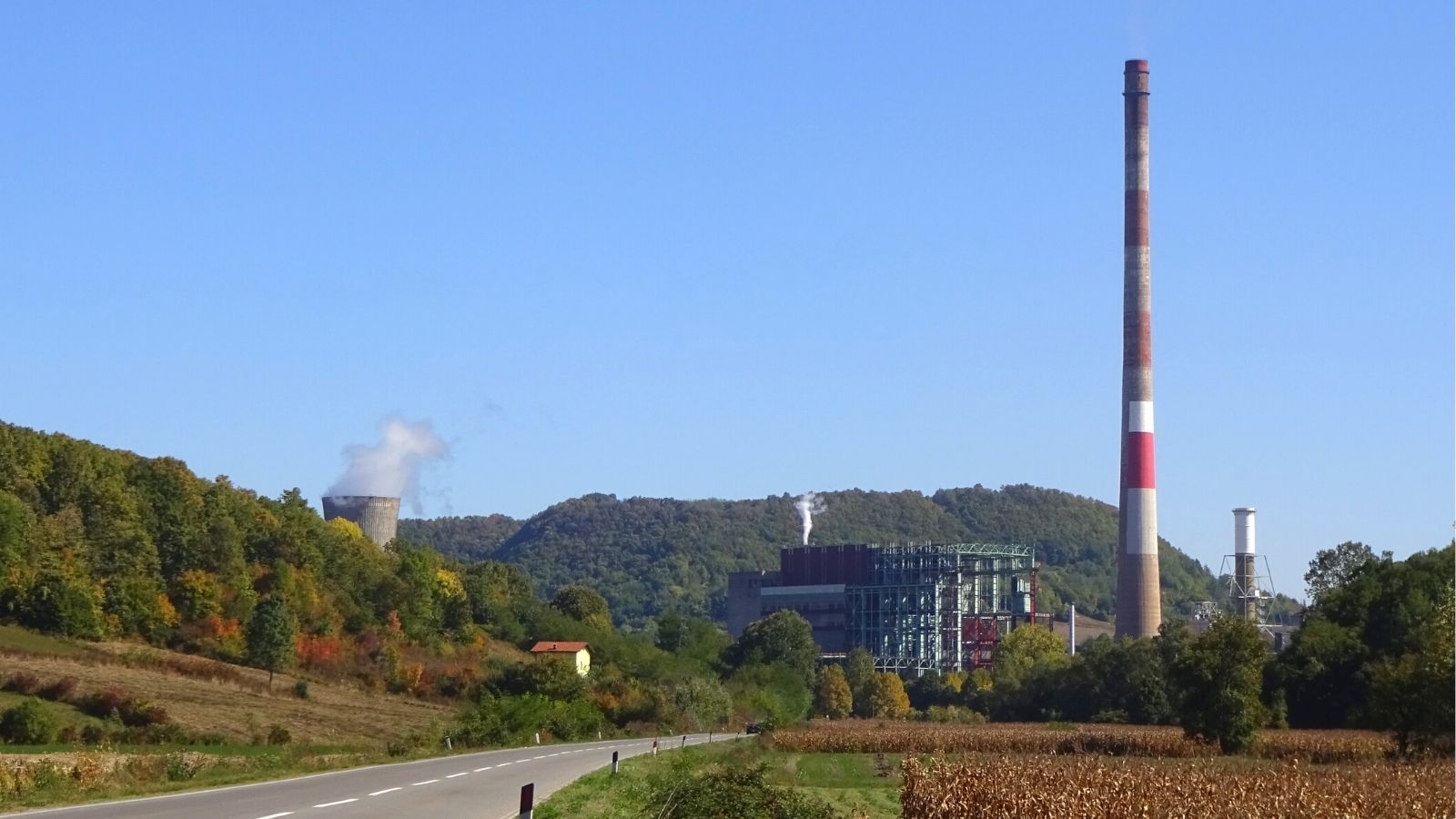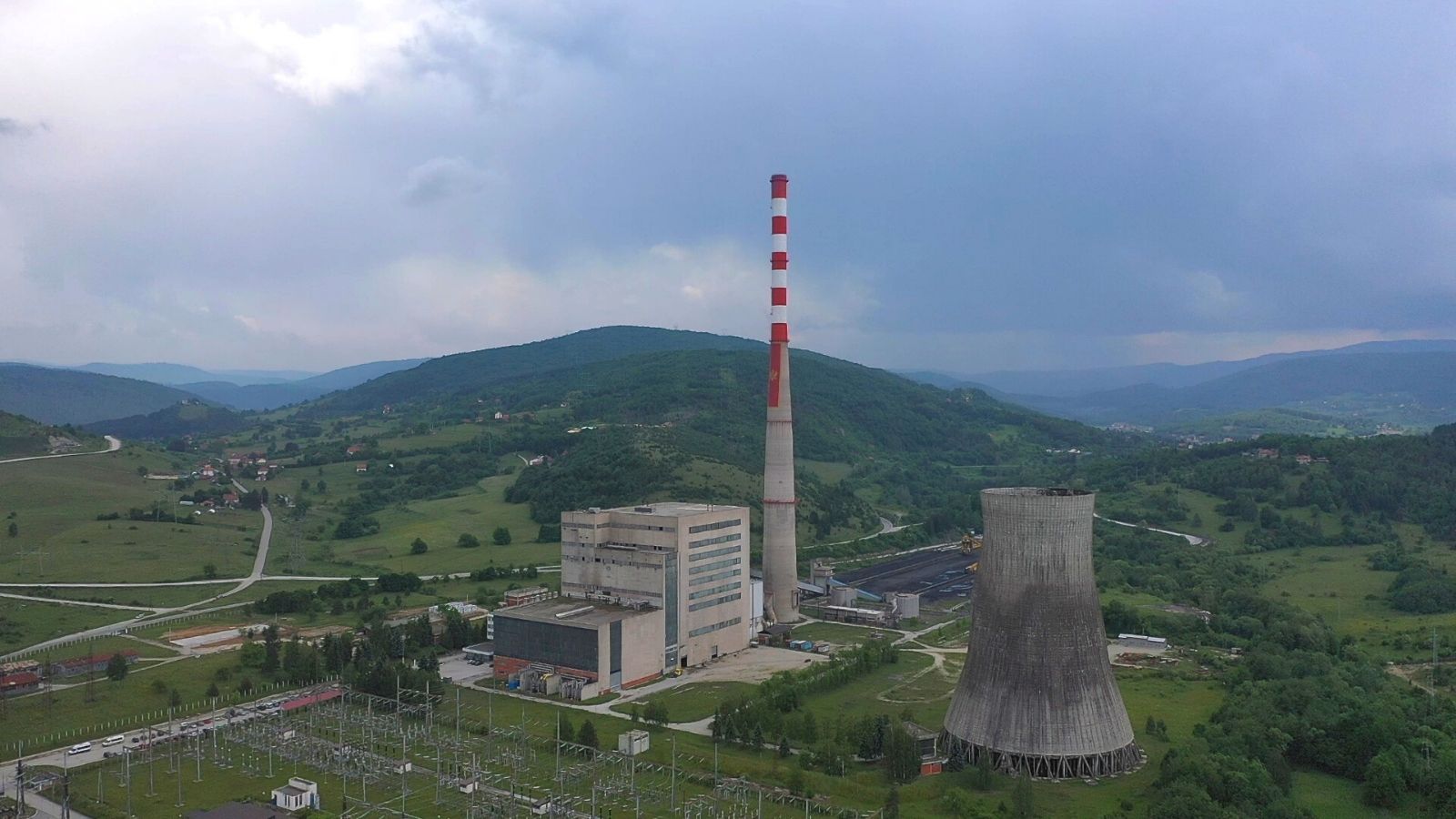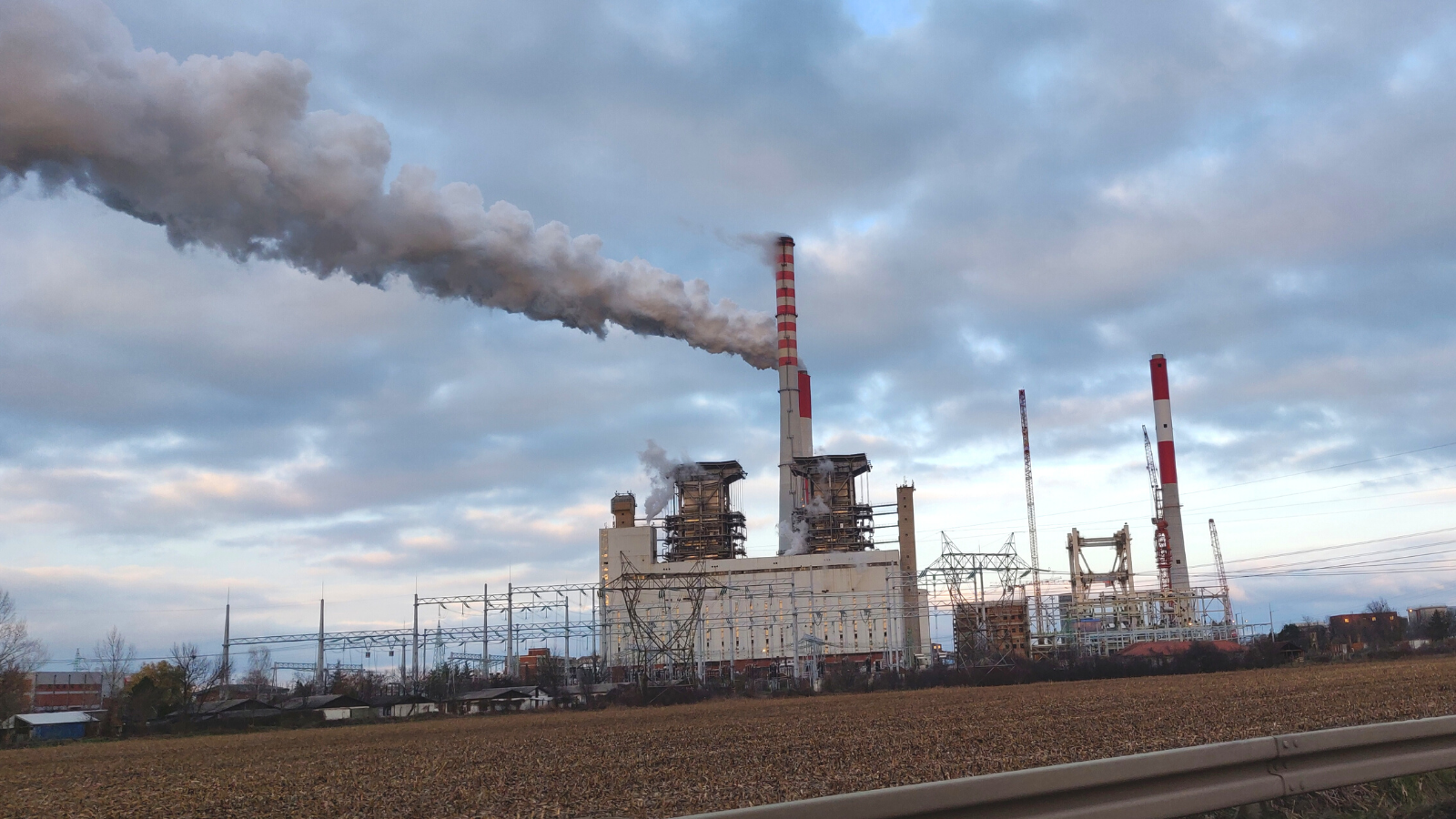Fossil fuels are fast losing their social license. It is becoming increasingly evident that countries’ continued reliance on dirty hydrocarbons escalates the climate crisis, worsens air pollution and enables war.
Long touted as a ‘bridge fuel,’ fossil gas now needs to be recognised by policymakers for the hurdle to the energy transition that it is, and multilateral development banks should urgently end support for gas projects and gas-dependent companies.
The energy transition has to be just and fast, with citizens, municipalities and workers as critical participants in the process. We are working to ensure no more public money is spent on coal, and public finance is used to accelerate this transition.
Stay informed
We provide updates in English from the Balkans and other coal regions.
IN FOCUS
Fossil gas
Fossil gas is the new coal. Although often labelled ‘natural,’ fossil gas is a major driver of the climate crisis. There is no more room for new investments in fossil gas projects if we are to avert the worst impacts of the climate crisis and set a path towards decarbonisation.

District heating
District heating and individual heating are still dominated by fossil fuels and inefficient burning of wood without regard to sustainability criteria, in combination with a low degree of energy efficiency. This has to change, since heating plays a crucial role in the transition into a clean and zero-carbon economy.

Just transition
No one should be left behind when we reconstruct our world into one driven by clean energy. Working on just transition brings all actors who believe in fair regional redevelopment to the same table: unions, industry, public administration, governments, civil society and others sharing this goal.

Documentary: Turning the Tide
Our documentary exposes, for the first time, the extent of financial support four of the world’s leading multilateral development banks (MDBs) – the World Bank, the European Investment Bank, the Asian Development Bank and the European Bank for Reconstruction and Development – have been providing to the global fossil fuels industry over the past 13 years.
Our analysis shows that since 2008, the oil, coal and gas business has been enjoying no less than EUR 81.5 billion in support from these government-owned financial institutions in the form of loans, grants, credit lines and guarantees.
Coal projects
Ugljevik power plant, Bosnia and Herzegovina
Commissioned in 1985, the 300 MW coal power plant in Ugljevik, Bosnia and Herzegovina, has become famous for emitting more sulphur dioxide than all of Germany’s coal power plants in 2019.
Pljevlja I power plant, Montenegro
The existing 225 MW Pljevlja thermal power plant in the north of Montenegro, near the borders with Serbia and Bosnia-Herzegovina, has been operating since 1982. The plant was originally planned to comprise two units but the second one was never built. The plant, along with the extensive use of coal and wood for heating, has caused unbearably bad air quality in the town.
Kostolac B power plant (B1, B2), Serbia
The Kostolac B power plant, consisting of 2 units of 350 MW each, first entered into operation in 1987. In 2022, the plant delivered 4388 GWh of electricity to the grid, nearly 20 per cent of the country’s coal-based generation.
Latest news
Slovenia coal fraud charges serve as warning for other Balkan countries, say NGOs
Press release | 15 October, 2014Ljubljana, Slovenia: Slovenian police yesterday reported that ten people had been charged with fraud in relation to the beleaguered Sostanj 6 lignite power plant project, causing a suspected EUR 284 million in financial harm to Slovene electricity consumers. The charges serve as a new warning to decision-makers across the Western Balkans to closely scrutinise coal power plant projects planned across the region if the mistakes made in the Sostanj 6 project in Slovenia are not to be repeated, warned several NGOs today.
Read moreFalse Data in EIA for New Bosnian and Herzegovinian Power Plant Ugljevik III
Bankwatch in the media | 8 October, 2014http://www.energetika.net/eu/novice/clanki/false-data-in-eia-for-new-bosnian-and-herzegovinian-power-pl?utm_source=en.news
Read moreMarubeni and Alstom’s corruption records cast new doubts on Croatian coal project, warns new analysis
Press release | 2 October, 2014Zagreb — Japan’s Marubeni Corporation and France’s Alstom – who have together been chosen as the preferred bidding consortium for the Plomin C* coal power plant project in Croatia – have a poor integrity record including several convictions for corruption offences which should raise alarm bells and increase vigilance among the Croatian public and potential financiers of the project, according to a new paper by CEE Bankwatch Network, published today.
Read moreRelated publications
The Modernisation Fund: An open door for fossil gas in Romania
Report | 26 March, 2024 | Download PDFThe Modernisation Fund is supposed to channel revenues from the EU’s carbon market into the energy transition in central and eastern Europe. But it’s actually being used to further deepen the region’s dependence on fossil gas.
The great energy trap: An evaluation of the economic viability of replacing coal with gas in large power plants in Bulgaria
Report | 14 March, 2024 | Download PDFThis report analyses several scenarios for replacing the existing coal capacity at Maritsa East and Bobov Dol with new gas-fired units. It looks at the implications of these projects becoming financially viable, including the investments required, possible state aid, and the electricity costs for households.
The EU’s proposed Reform and Growth Facility for the Western Balkans
Briefing | 7 March, 2024 | Download PDFThis briefing provides key recommendations to define clearer and narrower goals for the Reform and Growth Facility for the Western Balkans, focusing on social and/or environmental goals.




